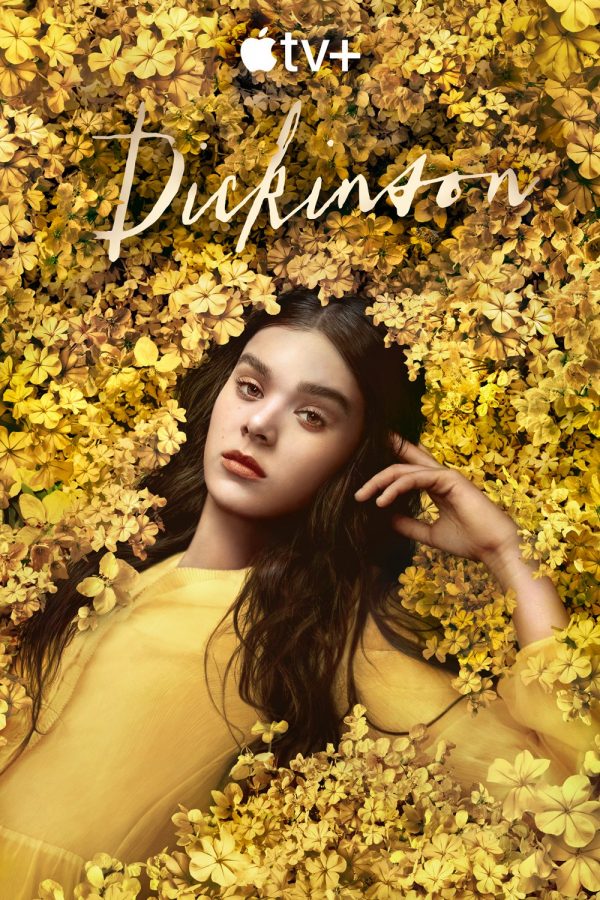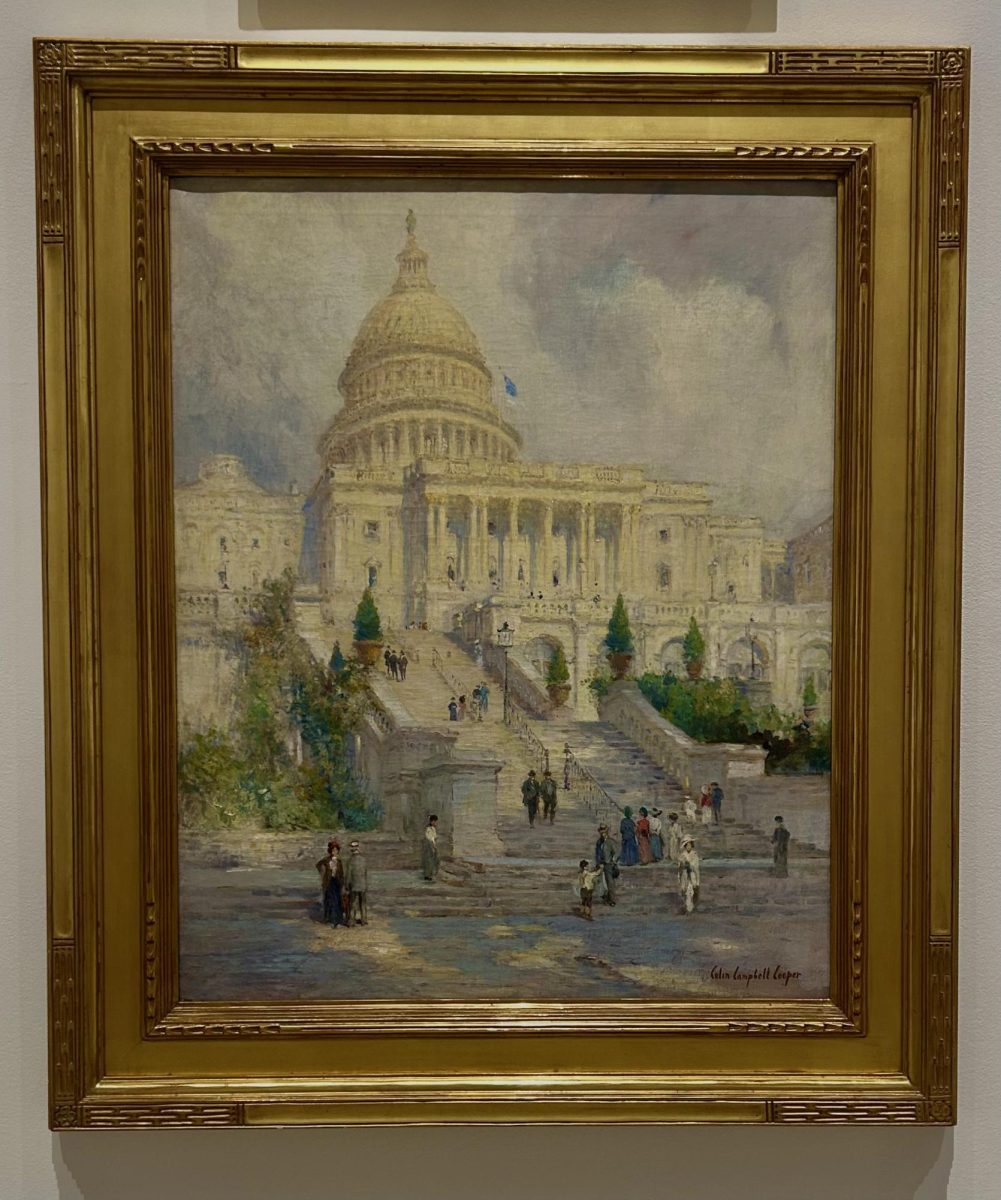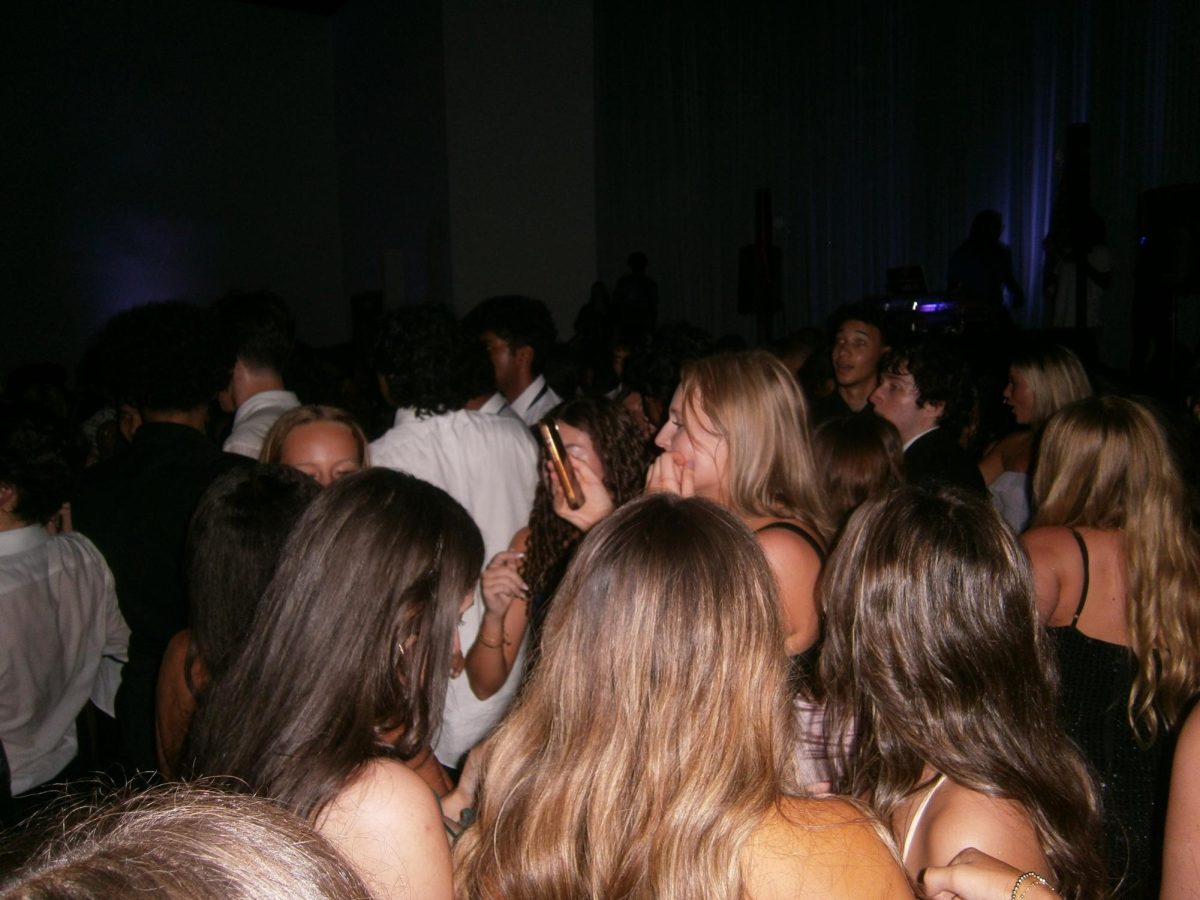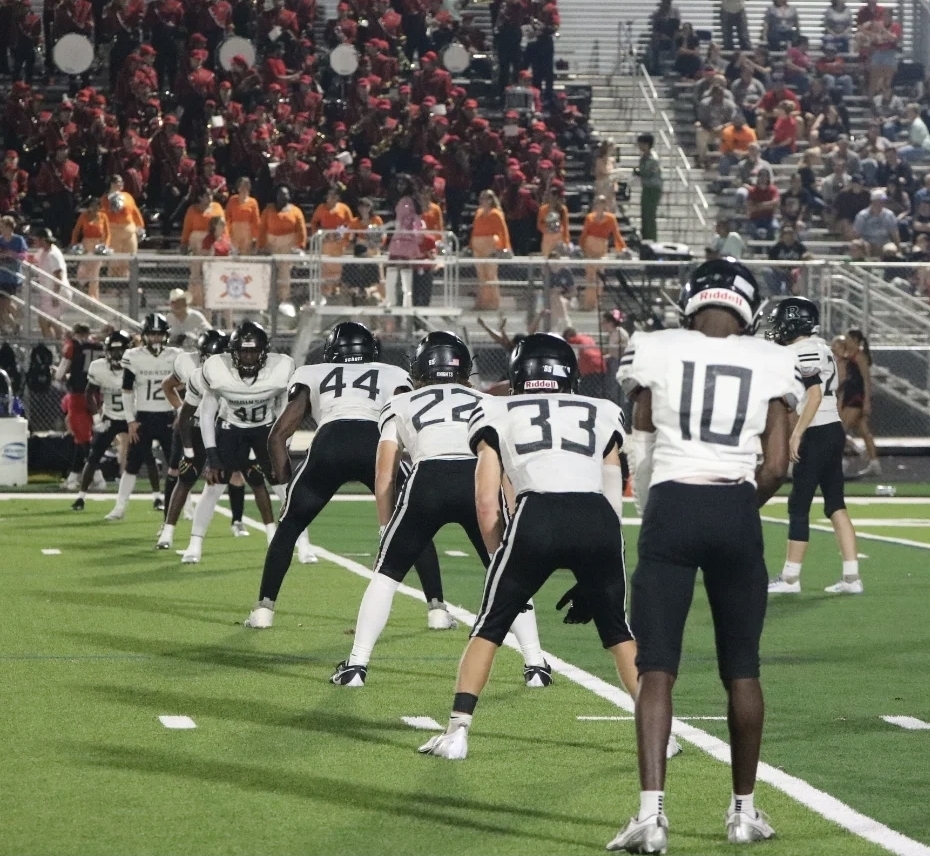Review: Dickinson season two matures alongside Emily
Season two of Dickinson perfects its unique charm as the main character Emily grows into herself
Photo Apple TV +
The poster for Dickinson season two, featuring Hailee Steinfeld as the titular character.
March 22, 2021
Note: This review will use Dickinson to refer to the show, Emily to refer to the character and Emily Dickinson to refer to the real-life poet.
I never thought that Dickinson is the kind of TV show that would get a second season. For one thing, the show actually good, and for another, it is unquestionably and unabashedly weird, so I thought the first season would be mine alone to treasure. Nevertheless, it persisted. The finale for season two of Dickinson aired Feb. 26., and was a perfect culmination of the mystery and tension that had been built up around Emily’s life.
The season starts with a voice-over done by Hailee Steinfeld, the actress for Emily Dickinson. Over shots of her handwritten poetry, Steinfeld describes how little is known of Emily Dickinson’s life during the time period when season two is set, and so much of the plot is pulled from her poetry.
Just like in season one, each episode title is from the first line of one of her poems, whether the show takes it as face-value or not. This time, there is no acknowledgment of how the show knowingly strays from Emily Dickinson’s personality to create the character of Emily, but there doesn’t need to be; the show effortlessly depicts Emily evolving from a headstrong and naive young girl into a woman who has lived through both all-consuming love and loss and has come out the other side stronger, if not quieter.
The first episode immediately introduces the mystery of a ghost that is haunting Emily, the poet obsessed with death. Although at times it feels as if the season forgets that character, they bring him back just in time for him to shake Emily’s world, intensifying the suspense as she struggles to unravel his identity all while dealing with her own problems. The reveal is perfect and unexpected, and it sets the season on the edge of a precipice, like any change of the wind will send the characters and their society crashing down. Combined with the plot of Emily grappling with sexism, her own feelings on the merits of fame and her complicated feelings for her ex-lover and sister-in-law Sue, this season is complicated and mature in ways the first season couldn’t tackle.
You’ll be sorely disappointed if you try to use this show for escapism. It’s set in the Antebellum period directly before the Civil War, and one of the season’s subplots follows a group of free Black people in Amherst running a newspaper and working to end slavery. I was afraid that the show would have the main characters act subtly racist for the sake of realism—an excuse that I’ve always hated for needless in-show bigotry—but that was never once allowed, for which I was grateful. Emily Dickinson and her brother may not have been overt abolitionists in real life, but Dickinson long ago abandoned the confines of reality with their personification of Death and Emily’s quasi-love affair with him.
That isn’t to say the show doesn’t know when to be fun and light-hearted. The music is as equally ridiculous and endearing as it’s always been, with “Make That Cake” by LunchMoney Lewis and Doja Cat playing during a baking montage and “Light On” by Maggie Rogers playing directly after Emily hallucinates Sue singing to her in an Opera theatre. There are weird dance-offs in barns and bizarre spa days and everything else that makes Dickinson the masterpiece that it is.
There are times where I think they tried to shove too much in one season. There are other times where I think that it was perfect and I’d change nothing. What Dickinson mastered is the ability to transform a story from a carefully-constructed narrative to something that parallels life in all of its messiness, even if it seems like “too much” for Emily to handle.
Dickinson is worth the watch, and with season three currently being written, it will certainly be worth the wait. The magical realism that is inherent in Emily Dickinson’s poetry was brought to life in season two of Dickinson, combining the macabre and fantastical and all the elements that run throughout her poems. The show takes history and has it walk a fine line between silly and heartbreaking, naive and mature, and does it with a master’s hand—or, better yet, a poet’s ear.











